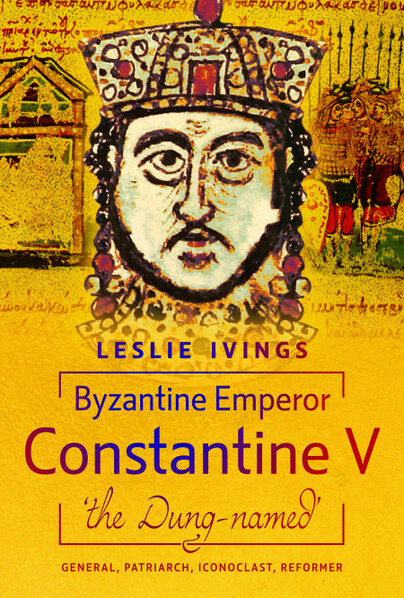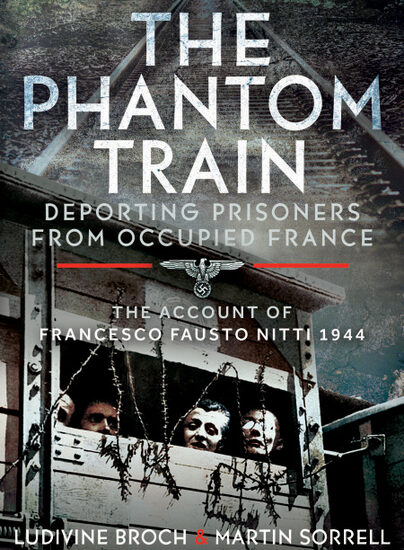History, Humour, and a Hint of Dung: Researching Constantine V
by Leslie Ivings author of Byzantine Emperor Constantine V ‘The Dung Named’.
I never expected to find myself chuckling in the middle of a dusty Byzantine manuscript, but there I was, surrounded by notes and coins, shaking my head at the peculiar world of Constantine V. The man, a ninth-century emperor, often remembered with the rather unflattering sobriquet “the Dung Named,” surprised me in ways I could hardly have anticipated when I first embarked on this research. I approached his life with the usual scholarly wariness, prepared to wade through political intrigue, theological debates, and endless court protocols. What I wasn’t ready for was how much sheer character and human absurdity could peek through the official chronicles, often in the most unexpected corners.
One of the first surprises was the sheer intensity of administrative detail. Constantine V was, in many ways, a bureaucrat-emperor. He left behind records, edicts, and coinage so meticulously documented that a modern researcher can feel almost as if they are tracking the man’s every breakfast and council meeting. Now, you might think that such detail would be dry, perhaps soporific, but the way the evidence accumulates is oddly entertaining. Coins minted in his reign, for instance, seem to shout at us from the past with their precise inscriptions and iconography. Each one is a small, polished proclamation: “I am emperor! Take note!” There’s an almost comic persistence in this numismatic self-assertion that makes you grin, imagining the emperor himself overseeing mint after mint, personally inspecting the tiny faces stamped in metal.
And then there’s the matter of his nickname, which, if you are a fan of dramatic titles, will make you sit up. “The Dung Named” is not merely an epithet designed to provoke modern readers into curiosity; it reflects a genuine perception among contemporaries of his humble beginnings or perhaps his earthy personality. This is not the sort of sobriquet one usually finds attached to an emperor, and it offers a window into how Byzantine society could mix humor, insult, and historical record with reckless abandon. I found myself wondering about the conversations that must have occurred in palace corridors, advisors stifling snickers as they drafted memoranda or reported on imperial decrees. The combination of respect, fear, and amusement that surrounded Constantine V made his court a place where human eccentricity could coexist with the machinery of empire.
Perhaps the most delightful surprise, though, was the tension between his public persona and the private man glimpsed through letters and secondary sources. Constantine V was a strict enforcer of policies, notably his controversial iconoclast measures, yet traces of his personal concerns slip through the cracks. He was methodical and sometimes ruthless, but he was also human, prone to the kinds of small obsessions and personal habits that scholars love to uncover. I found myself jotting down notes with a smile when reading accounts of his peculiar attentions to palace gardens or military drill routines. There is something inherently charming about a ruler who meticulously oversees his troops’ exercises while simultaneously commanding an empire under constant threat.
Researching his campaigns in the Balkans offered yet another surprise. Here was an emperor whose reputation for discipline and severity clashed with the almost slapstick nature of some reported incidents. Ambushes that should have been textbook exercises in misfortune turned into narratives of resilience, ingenuity, or occasionally bizarre outcomes. Reading these accounts, it’s hard not to picture the scene with a wry grin: generals issuing commands that are ignored, courtiers scrambling in confusion, and Constantine himself navigating both strategy and spectacle with the air of a man fully aware of his historical stage. There is drama and, yes, inadvertent comedy in the way these episodes unfold, and they lend a very human rhythm to the otherwise weighty chronicles.
Even the scholarly debates themselves proved unexpectedly entertaining. For an emperor whose reign is meticulously chronicled, the disagreement among historians about motives, effectiveness, and even chronology is almost theatrical. Piecing together sources from chronicles, letters, coins, and inscriptions is like assembling a puzzle where some pieces are deliberately misleading, others missing entirely, and a few have been scribbled on by overzealous later commentators. Each discovery, each contradiction, is a mini cliffhanger, forcing the researcher to balance evidence, intuition, and, occasionally, good-natured exasperation. The delight comes not only from uncovering facts but from navigating the eccentricities of those who recorded them.
And of course, the Byzantine court itself is a source of endless fascination. Lavish rituals, elaborate ceremonies, and symbolic acts are everywhere, yet within this grandeur lie moments of absurdity that humanize the historical narrative. Imagine, if you will, the pageantry of court life: officials in ornate garb, emissaries presenting gifts, the emperor passing judgment, and yet all under the shadow of intrigue, rumour, and the occasional unexpected event that throws everyone into disarray. Constantine V’s reign, in its combination of discipline and unpredictability, offers glimpses of a world at once awe-inspiring, terrifying, and genuinely amusing.
So, what surprised me most in researching Constantine V? It was the humanity, the unexpected humour, and the vivid texture of life behind the official records. Historians often approach figures like him with a degree of solemnity, but what I found was that even the most rigid sources can reveal quirks, idiosyncrasies, and moments of levity that make the past feel incredibly alive. And this, I think, is what makes the emperor so fascinating, the blend of the serious and the absurd, the historical and the human.
For anyone intrigued by Byzantine history, or simply curious about an emperor who commands attention even today, Constantine V “The Dung Named” offers both the rigorous scholarship you would expect and the surprises, oddities, and entertaining insights that keep the narrative alive. Researching his life has been a journey of discovery, not only of history but of the unexpected delight that can emerge when one delves deeply into a world so distant, yet so vividly human. If you want to see the emperor in all his complexity, disciplined, controversial, and occasionally downright amusing, this is the book to take you there.

Order your copy here.

